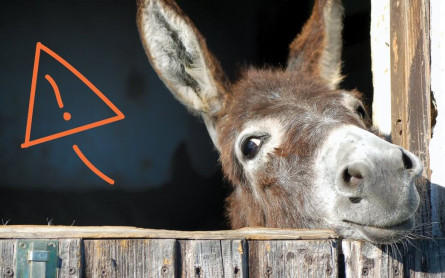
Planning & budgeting
Saving & investing
KiwiSaver
Tackling debt
Protecting wealth
Retirement
Home buying
Life events
Setting goals
Money tracking
Plan your spending with a budget
Getting advice
Studying
Get better with money
What pūtea beliefs do you have?
How to build up your emergency savings to cover unexpected costs
How to save your money
How to start investing
Find a financial adviser to help you invest
Your investment profile
Compound interest
Net worth
Types of investments
Term deposits
Bonds
Investment funds
Shares
Property investment
How KiwiSaver works and why it's worth joining
How to pick the right KiwiSaver fund
Make the most of KiwiSaver and grow your balance
How KiwiSaver can help you get into your first home
Applying for a KiwiSaver hardship withdrawal
How to use buy now pay later
What you really need to know before you use credit
How to get out of debt quickly
Credit reports
Know your rights
Pros and cons of debt consolidation
Credit cards
Car loans
Personal loans
Hire purchase
Student loans
Getting a fine
What happens if I start to struggle with moni?
How to build up your emergency savings to cover unexpected costs
Cryptocurrency
How to protect yourself from fraud and being scammed
About insurance
Insurance types
Insuring ourselves
Wills
Enduring powers of attorney
Family trusts
Insuring our homes
Losing a partner
Redundancy
Serious diagnosis
How to cope with the aftermath of fraud
Separation
About NZ Super – how much is it?
When you’re thinking of living in a retirement village
How to plan, save and invest for retirement
Manage your money in retirement
Find housing options in retirement
Four approaches to spending in retirement
Planning & budgeting
Saving & investing
How to build up your emergency savings to cover unexpected costs
How to save your money
How to start investing
Find a financial adviser to help you invest
Your investment profile
Compound interest
Net worth
Types of investments
Term deposits
Bonds
Investment funds
Shares
Property investment
View all
KiwiSaver
Tackling debt
How to use buy now pay later
What you really need to know before you use credit
How to get out of debt quickly
Credit reports
Know your rights
Pros and cons of debt consolidation
Credit cards
Car loans
Personal loans
Hire purchase
Student loans
Getting a fine
What happens if I start to struggle with moni?
View all
Protecting wealth
How to build up your emergency savings to cover unexpected costs
Cryptocurrency
How to protect yourself from fraud and being scammed
About insurance
Insurance types
Insuring ourselves
Wills
Enduring powers of attorney
Family trusts
Insuring our homes
Losing a partner
Redundancy
Serious diagnosis
How to cope with the aftermath of fraud
Separation
View all
Retirement
Home buying
18 November 2019
Reading time: 4 minutes
Posted by Tom Hartmann,
0 comments

Let’s say someone asked to use your bank account, and in return they’d leave you some funds. Would red flags go off in your mind? Hopefully they would for all of us.
Criminals need to secretly move funds from their scams, drug running and human trafficking. And in order to get as many “layers” between them and the cops as they can, they funnel it through many different bank accounts. This is where money mules come in.
A mule is someone who “carries” money – knowingly or not – for a criminal. After the funds land in their account, they may end up transferring it electronically, taking it out in cash or buying virtual currency like Bitcoin.
Some mules are more aware of what’s happening than others. Some may not even suspect that their account is being used by criminals to transfer money and cover up the fact that it’s illegal. That’s what “laundering” is: making illegal funds seem clean and legit.
But depending how much money we’re talking about, mules can get up to seven years in prison for receiving funds from criminal proceeds. You might get all your bank accounts immediately shut down, get your identity stolen or have to pay back victims yourself.
It’s a big deal. So we need to protect our bank accounts and make sure this doesn’t happen.
It rarely plays out like the question above, with someone asking you directly to use your bank account. It would be more like, would red flags go up if you worked for a company that requested to move money through your bank account? It can become part of one of those “work from home” schemes you see online.
Criminals recruit money mules on social media, online dating, online classifieds, job-seeking sites. They typically target uni students, migrants, small business owners, recent retirees, lonely folks and job seekers. But anyone with a bank account can be in their sights.
You may be a money mule if:
It’s a wild west out there – keep your bank account safe!
For more about money mules and staying safe, download the Money Mules booklet.
Use verification code from your authenticator app. How to use authenticator apps.
Code is invalid. Please try again
Don't have an account? Sign up
Or log in with our social media platforms


A free account gives you your very own space where you can save your tools and track your progress as you get ahead.
Or sign up using Google:



Comments (0)
Comments
No one has commented on this page yet.
RSS feed for comments on this page | RSS feed for all comments